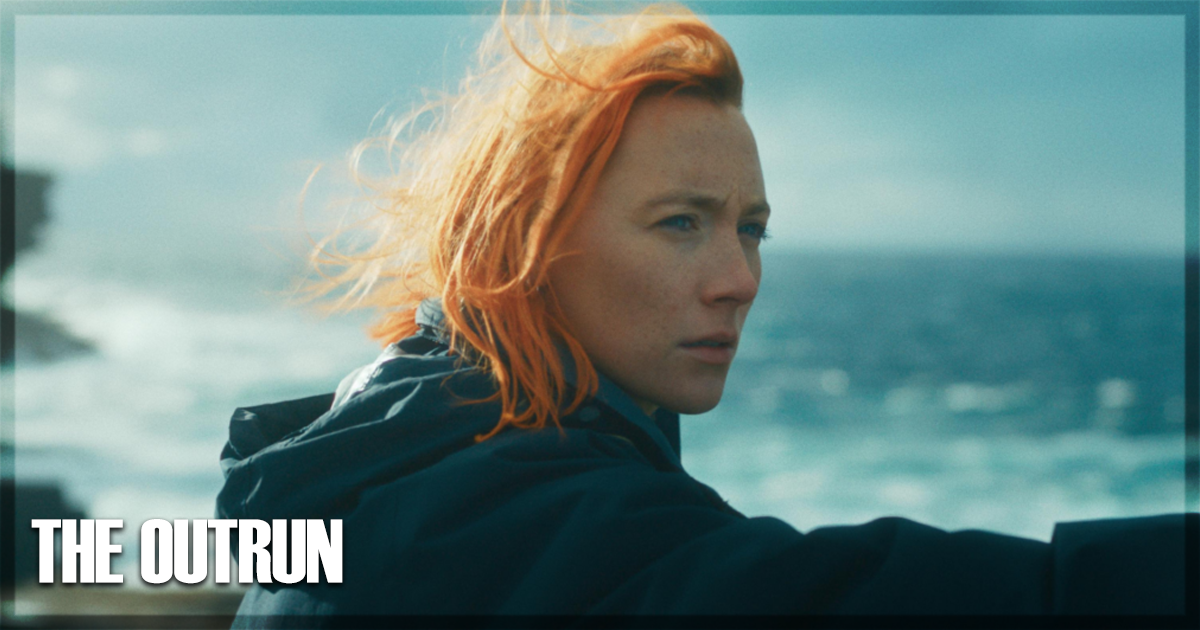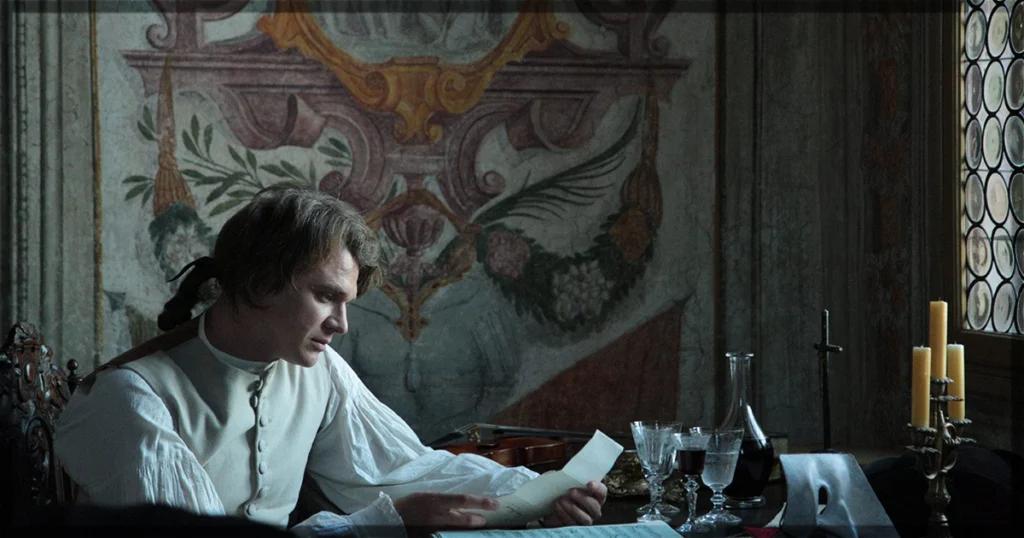Amy Liptrot’s breathtakingly poignant and unsparing memoir The Outrun has been acclaimed by critics and adored by readers across the world since its 2016 publication. Eight years later, the book loses none of its effect – the description of a very personal journey through familial mental illness, addiction, substance abuse, and shifting senses of belonging is wrought through Liptrot’s beautiful prose and the history of the Orkney islands north of Scotland that she grew up on and returned to in her path towards healing.
Turning such a work into a narrative feature film is no easy feat. On-screen, The Outrun, written and directed by Nora Fingscheidt (System Crasher, The Unforgivable), fictionalizes many details of the real-life account while staying immensely faithful in form to Liptrot’s narration. The protagonist’s name becomes Rona (Saoirse Ronan), who is first heard narrating Orkadian folklore and, moments later on screen, first seen storming into a bar in London at closing time, desperately searching for one last drink and setting off a chain of events that will lead her to sobriety and reconnecting with the islands she grew up on.
As in the book, The Outrun cuts between timelines and locations, following themes rather than a chronology. The narrative choice maintains continuity and is very easy to follow; were the cut and colour of Rona’s hair not a giveaway, the lighting, framing, and pacing delicately and precisely tracks where she is battling her addictions and accepting her life in recovery. Moreover, the effect is appropriately jarring, rocketing viewers between the highs and lows of Rona’s hard-partying nights and the more subdued approach she hopes to cultivate without alcohol.
Addiction is a difficult theme to explore on film; the stigma in viewing substance dependency and abuse as a moral failing rather than an illness with noticeable physical and mental components is a pervasive one, despite the best efforts of modern scientific communication. The Outrun pulls no punches in depicting Rona’s out-of-control habits and behavior that damages her life and those around her, but in no way does this come across as a condemnation of her character. With alcohol abuse often trivialized when the sufferer is a woman – especially a young, university-educated, white woman – The Outrun shows its dangers without sensationalism.
Fingscheidt and her crew capture the raw beauty and often extreme conditions of Orkney’s landscape and geographic and cultural isolation – all qualities very distinct from those of the Scottish mainland – through outdoor location shoots. One of the film’s most interesting explorations emerges from Rona’s split, or perhaps absent, sense of belonging anywhere. Her English parents moved to the very small, very close-knit Orkney before she was born; despite living her whole life there, she is never able to forget her lack of roots. Yet in London, she is markedly Orkadian. The Outrun is not a dramatic story of migration and homeland, but the delicacy and subtlety of this delineation will resonate with many modern experiences.
Unfortunately, despite strong technical elements and a bravura central performance, The Outrun never quite kicks into the gear needed to justify the existence of The Outrun in film form. Consistent use of voiceover narration makes its literary roots felt at all times, settling into a predictable storytelling pattern despite the jumps in time and place. Much of this narration details the geologic and natural history of Orkney, which begins to feel like an infomercial when combined with the nature footage. The group therapy sessions on Rona’s path to recovery also feel like a catalog of pitfalls and talking points rather than illuminating the various lives derailed by addiction. The result is bland and overwrought, feeling more like a generic checklist through addiction and recovery than Liptrot’s original soul-baring exploration.
On this central performance, Ronan’s brave, committed, intense, yet lived-in performance marks her as one of her generation’s definitive talents. Over her 17-year-long career, the actress has never shied away from the ugly and complicated facets of human nature. While she is somewhat hampered in The Outrun by the extensive voiceover, she captures Rona’s fierce creativity and determination alongside the self-pity and stoicism that co-exist as she faces her demons. Of particular poignance is the way she conveys Rona’s awkwardness, embarrassment, and evasion when returning to Orkney and her family, which sits alongside the comfort of home and being among people to whom you do not need to explain yourself.
The rest of the cast deliver naturalistic performances that fit the film, but all in support of Rona’s journey. Paapa Essiedu in particular is under-utilised as Rona’s partner Daynin; while he does not let himself become a victim to her illness as the plot progresses, the toll their relationship takes on him is never fully explored.
The overall impact of The Outrun is far less than the sum of its parts, but the film may serve as a great introduction into Liptrot’s excellent books – including memoirs published after this breakout that detail a life far more adventurous and rich than she imagined in recovery. Ronan has almost certainly guaranteed herself in this award season’s best actress races, and the variety and virtuosity of her career remains undimmed.
The Outrun recently played at the Edinburgh International Film Festival.
Learn more about the film at the Edinburgh International Film Festival site for the title.


